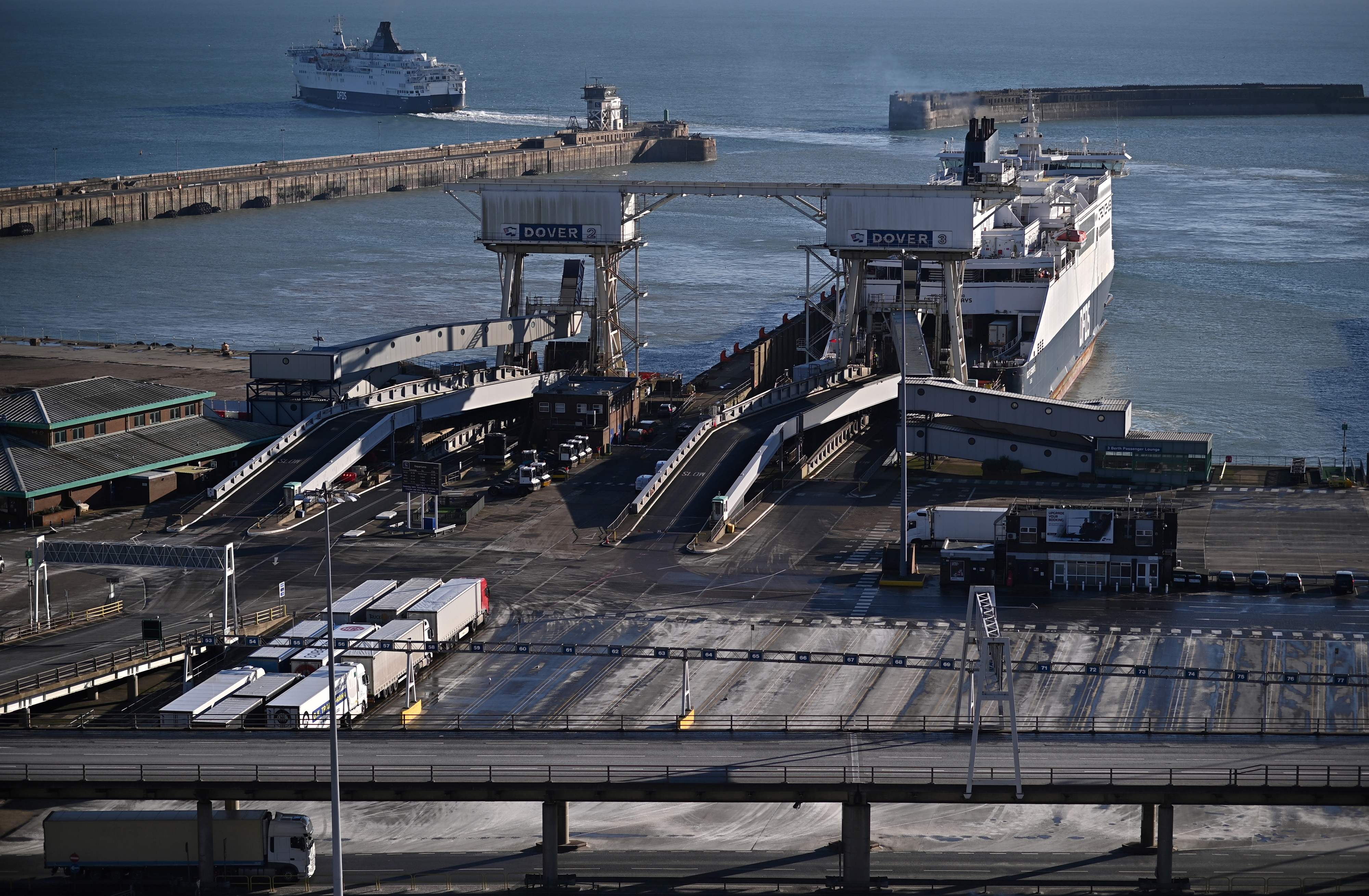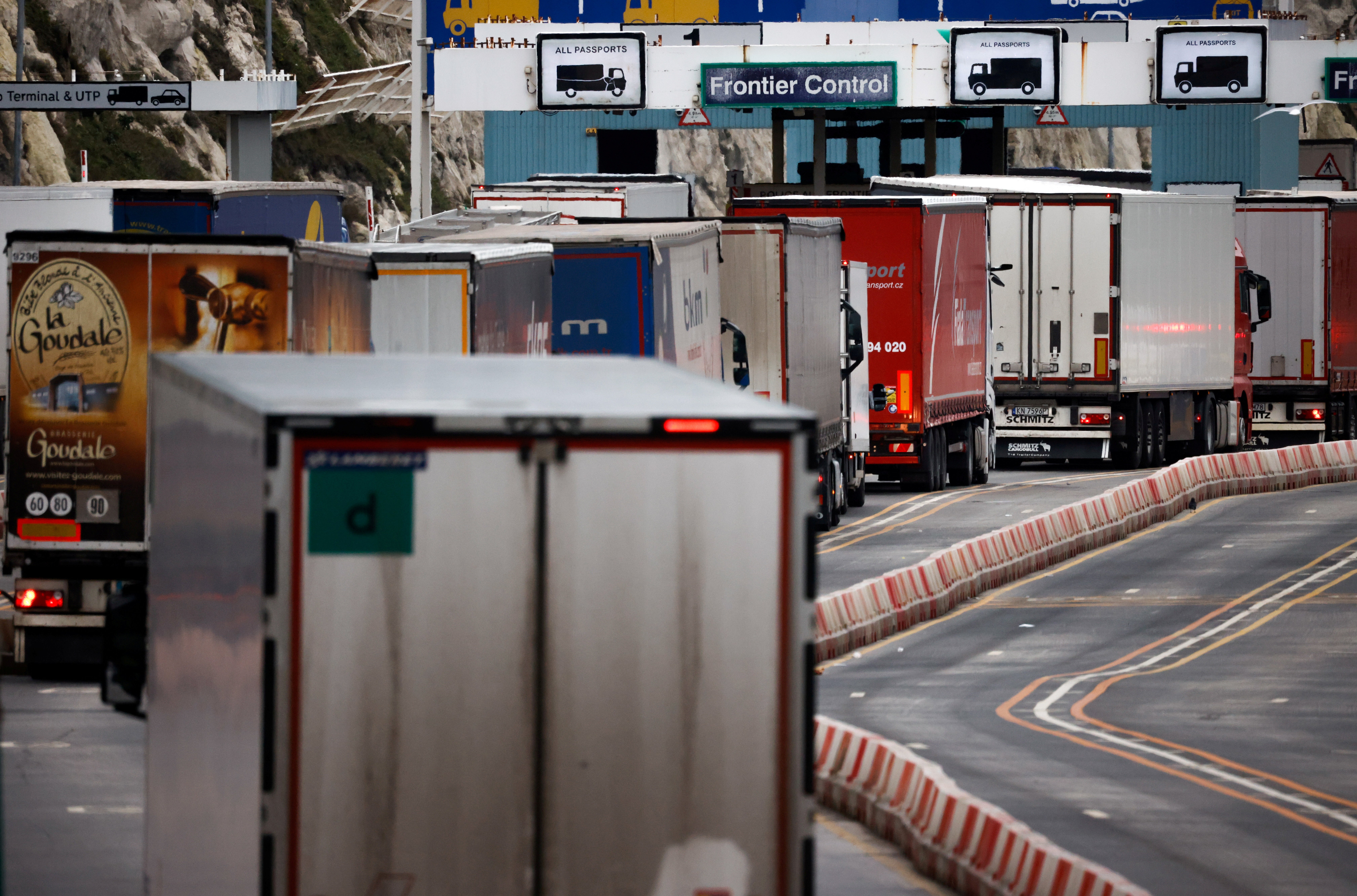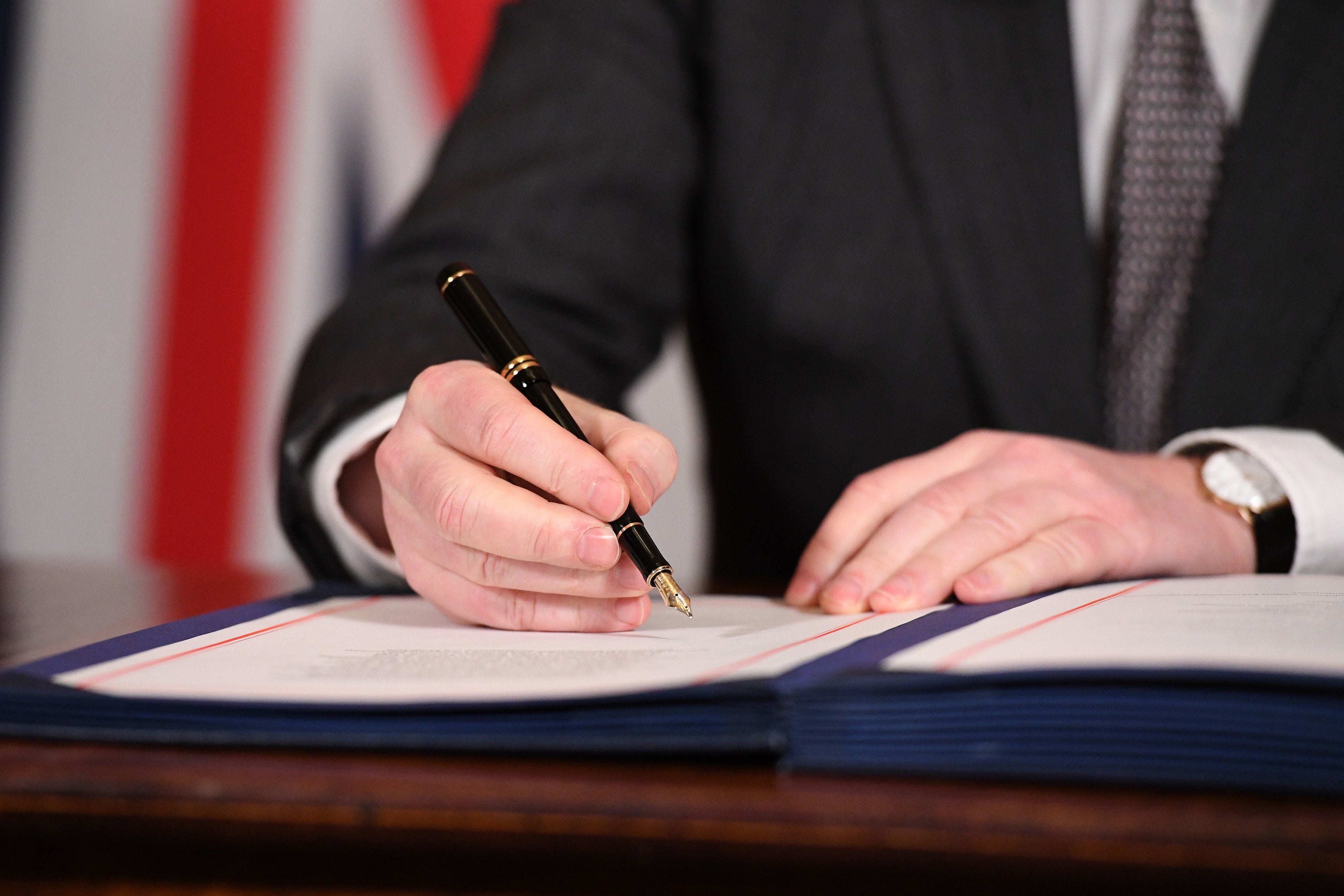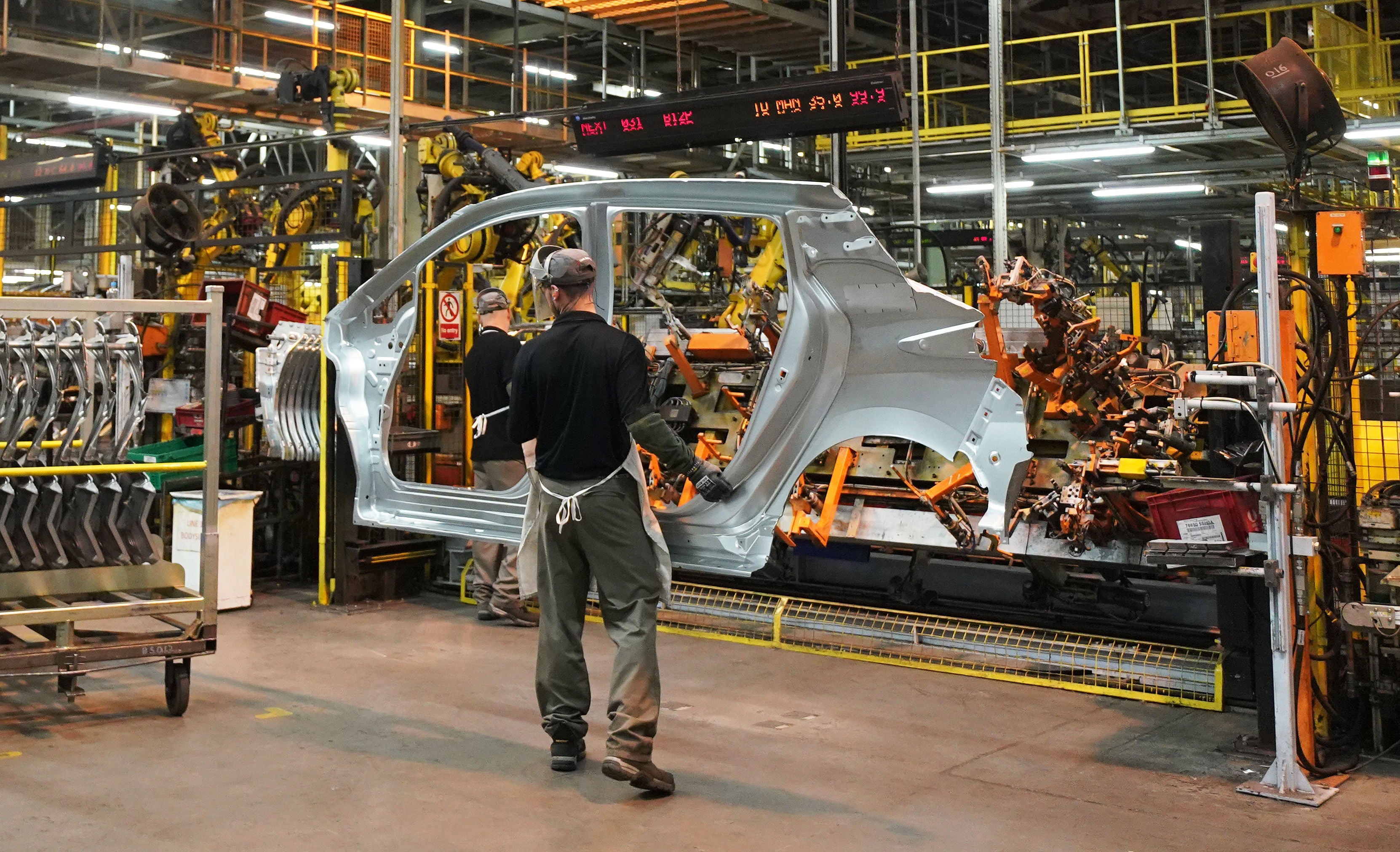How businesses have adapted to new trading rules with Europe

Businesses that have not yet prepared for new trading rules with Europe which came into effect from 1 January are being urged to act now to help ensure they can continue to trade smoothly.
Even though the UK has secured a zero-tariff, zero-quota deal, doing business with and travelling to Europe has changed.
Now the UK has left the EU customs union and single market, there are new rules and processes businesses will need to follow.
Firms need to follow new rules on exports, imports, tariffs, qualifications, hiring and travel, and could face disruption unless they have checked what the changes mean for them.
The government has said it will continue to work closely with businesses to ensure they are able to trade effectively under the new rules and it is essential that those who haven’t yet taken action check if they need to.

Kevin Stevens said his Essex-based logistics firm was prepared for the changes to trading that came in on 1 January.
His company, Woodland Group, which manages a global supply chain across Europe, the US and Asia, immediately put in place a number of measures to ensure the business continued to operate once the UK left the EU.
That included creating more warehouse capacity to facilitate longer lead times and preparing to move freight via alternative routes where holdups occurred.
“We knew there would be significant challenges, especially during the first few weeks of 2021 and gave our clients informed and honest opinions of where we thought the main issues would arise so they could plan accordingly,” said Mr Stevens.
He said one way his business had managed to stay ahead of blockages in the supply chain was by holding regular meetings with industry bodies who understood the new rules.
“We wanted to make sure we had the most up to date and accurate information available and were able to do this thanks to various trade and customs groups that we are members of,” Mr Stevens said.
The company transports as many as 8,000 shipments a month to and from Europe, and has had to make sure the processes are in place to deal with the extra paperwork that is now needed.
Asked what advice he would give to other businesses, Mr Stevens said: “Everyone needs to adjust to these changes and, understanding they are here to stay, put relevant processes in place.
“To fellow logistics businesses: investment is needed into systems and people to guide importers/exporters effectively. These have certainly been demanding unprecedented times.
“For importers and exporters looking to trade with the EU, it’s important to create a two-way information flow to educate each other on the changes and set aside time to be prepared.
“Consider connecting with logistics experts who have dedicated processes and administrative support in place to work through the new changes and take on the administrative work.”
Businesses should use the Brexit checker tool at gov.uk/transition for a personalised list of actions.
To give traders more time to prepare, new border controls are being introduced in three phases. Businesses which import from the EU must check the requirements that will start in April and July, and make sure they are prepared.

Alison Wood, founder of Scottish sustainable hygiene brand, Lilypads, made changes to her business to avoid disruption as the UK’s new trading relationship with the rest of the EU began.
She said the fact the business was used to shipping to Africa meant they were prepared for a similar process with countries in Europe – even though they are much closer to home.
“We export to Kenya, so importing from Lithuania didn’t seem like that big a jump,” she said.
“I used the Brexit checker on the gov.uk website and that was really good for pinpointing some of the things we hadn’t thought about.
“We export British materials and bring them back from Lithuania, so we had to prepare to be able to declare how much material we’d sent and how many pads are coming back.”

Anthony Pickering, president of Powys, Wales-based Control Techniques, which designs and manufactures electric motor control technology, exports to 77 countries around the world.
He said: “Planning has been the root cause of our success since 1 January, because we’re reliant on our supply chain.
“We had to tension our supply chain, which meant going to our suppliers and making sure they were ready, and had contingency plans in place – for example, if the port at Dover became blocked.
“They had to prove their suppliers also had a plan, reaching all the way back down the supply chain.”
Buying and selling goods
- To continue trading with the EU, businesses need to follow new rules for importing and exporting, including changes to customs processes and licensing.
- Most businesses use a specialist such as a customs broker, freight forwarder or fast parcel operator to deal with import and export declarations.
Avoiding hold-ups at the border
- Hauliers can use the 'Check an HGV is ready' service to make sure they have correct paperwork and should obtain a negative Covid-19 test, and a Kent Access Permit if they plan to travel via Dover or Eurotunnel.
Help with paperwork is available
- Most businesses use a specialist such as a customs broker, freight forwarder or fast parcel operator to deal with import and export declarations.
- The government has made over £80m available to expand the capacity of the customs agents market.
- The government also recently announced an additional £20m to support SMEs adjust to new customs, rules of origin, and VAT rules when trading with the EU.
Buying goods or gifts from the EU
- The UK has left the EU customs union and single market, meaning there are new rules and processes businesses need to follow.
- Depending on the value of goods sent as a gift, import VAT will apply to gifts from the EU as they do from the rest of the world.
- It’s a commercial matter for companies and parcel operators how they deal with any costs associated with trading goods between GB and EU, but there is no import VAT on goods under £135 (unless excise goods), so this shouldn’t be charged to customers.
Moving goods to Northern Ireland
- The free Trader Support Service is ready to support businesses moving goods. There are grace periods in place for certain goods and there are schemes like the Movement Assistance Scheme to support businesses in the agrifood industry.
Further help is available
- Extensive support continues to be available to help businesses trade confidently between the UK and EU and manage new processes.
- This includes dedicated helplines, webinars with policy experts, step by step guides, video explainers and the Brexit Checker tool for personalised actions to suit individual circumstances.